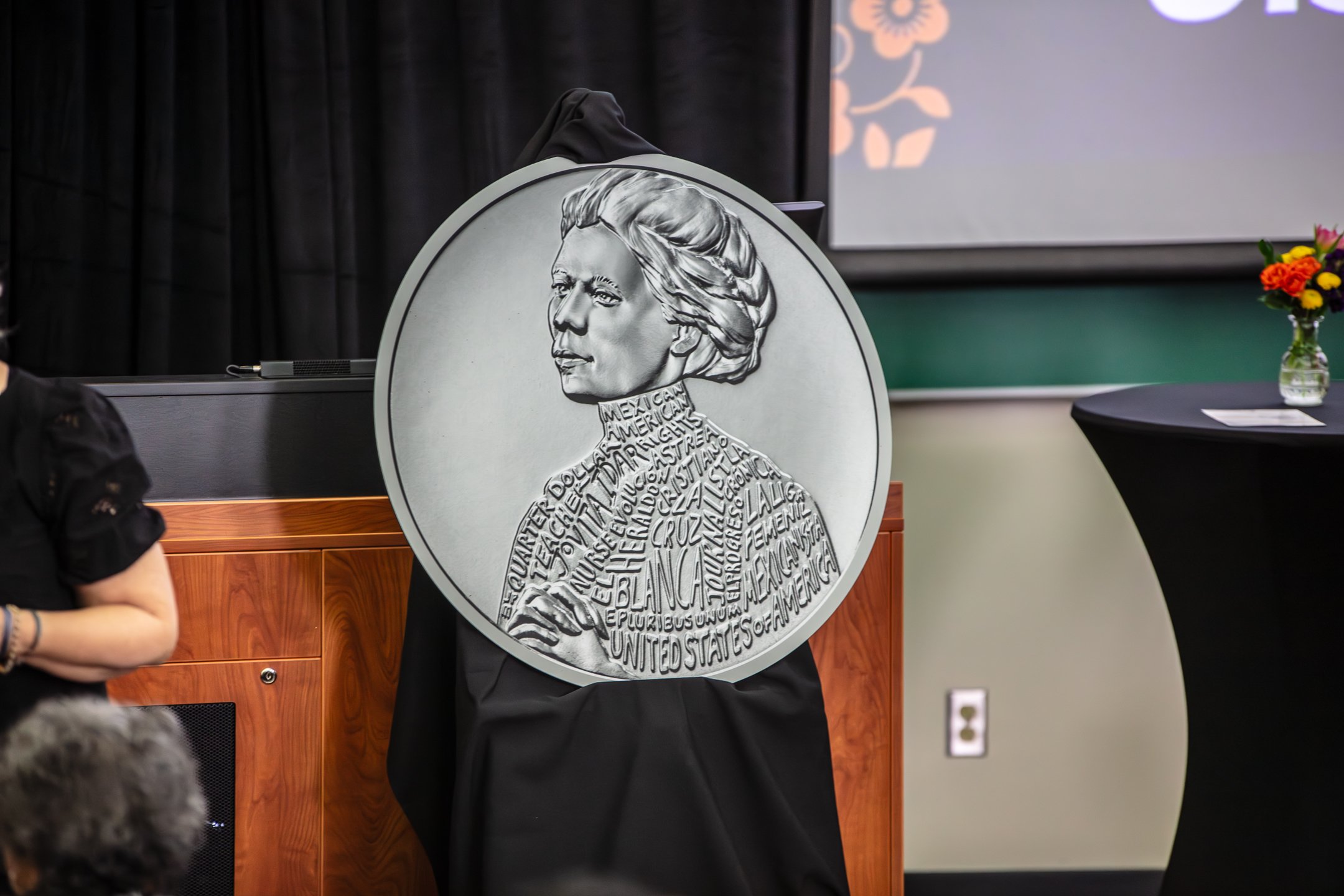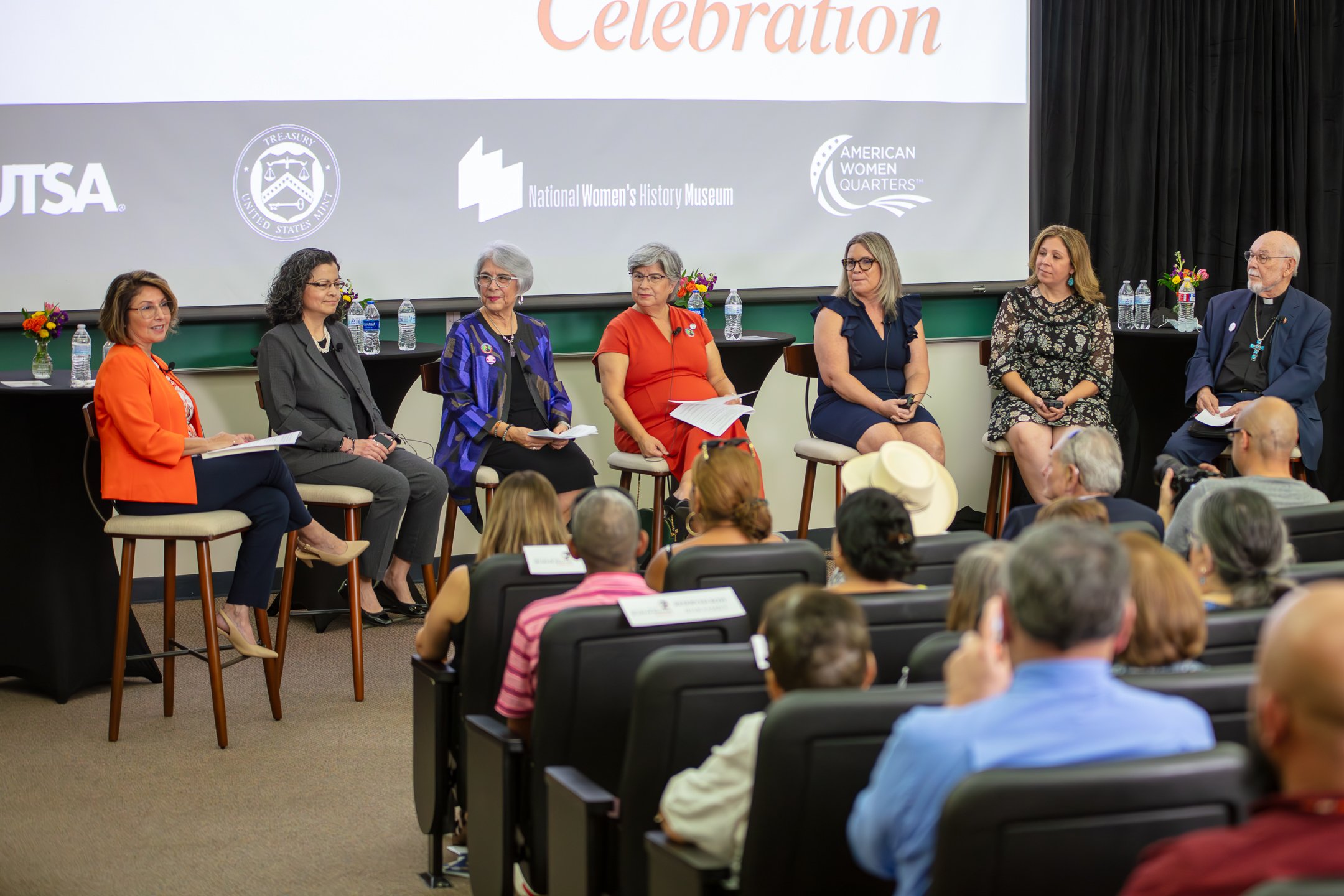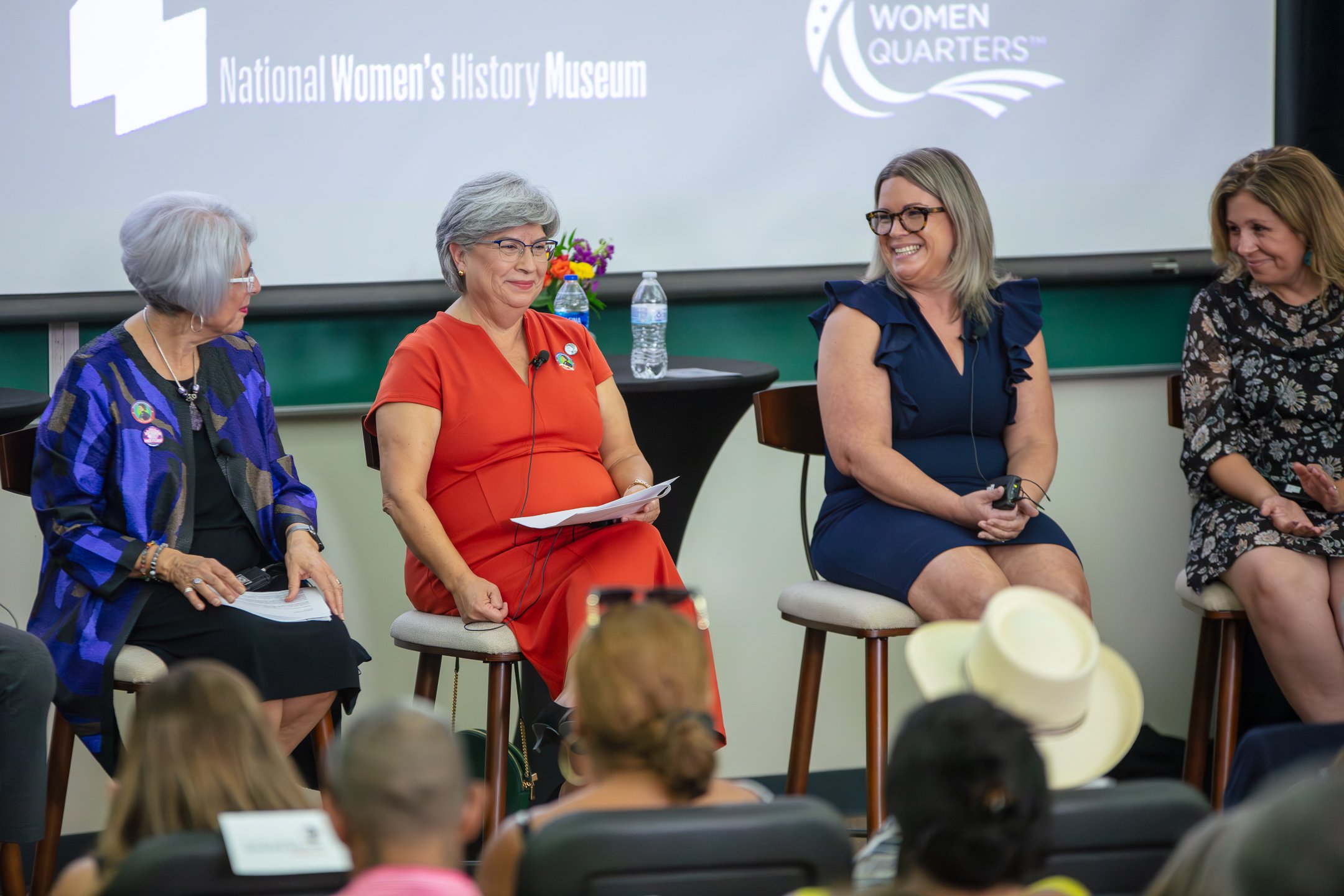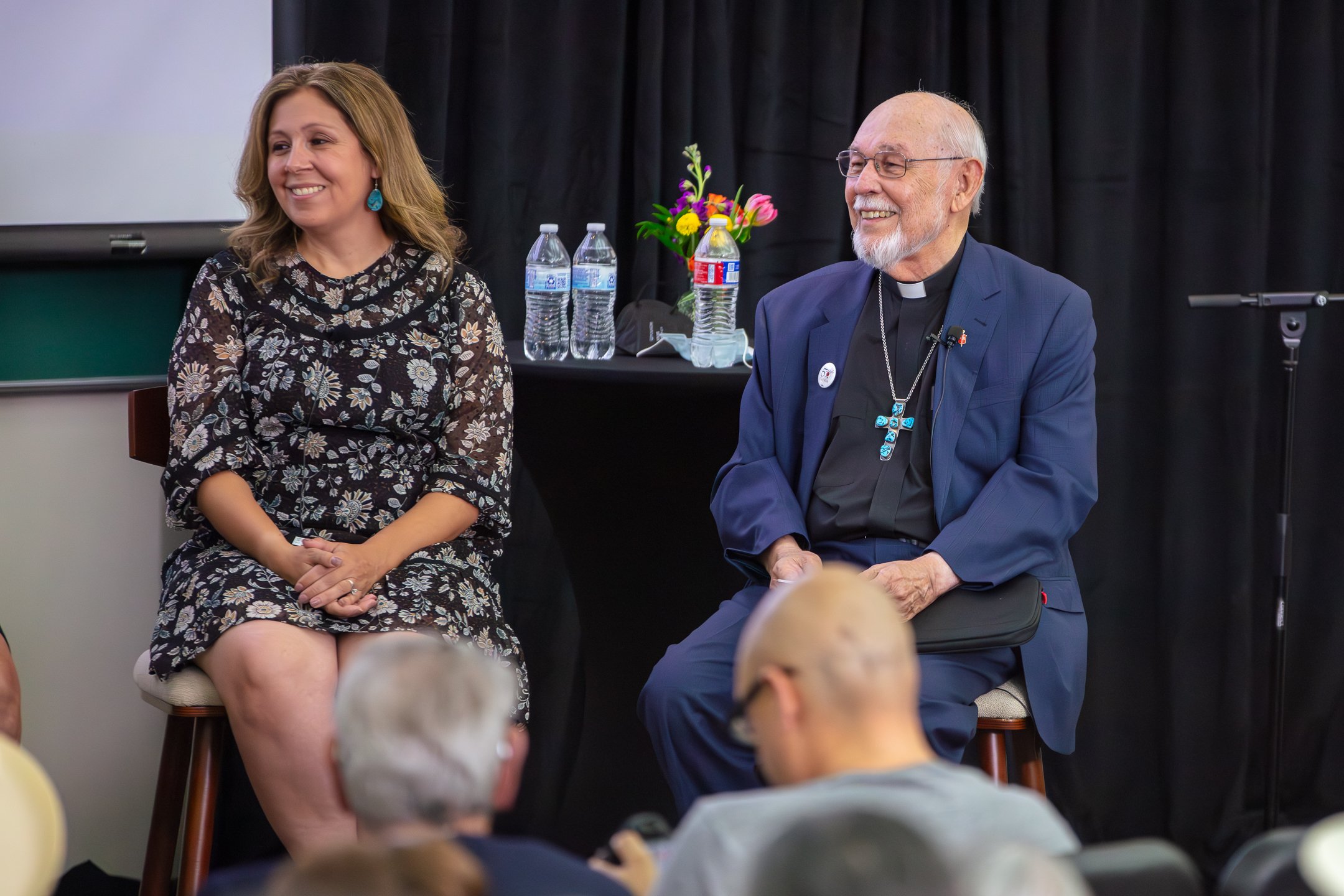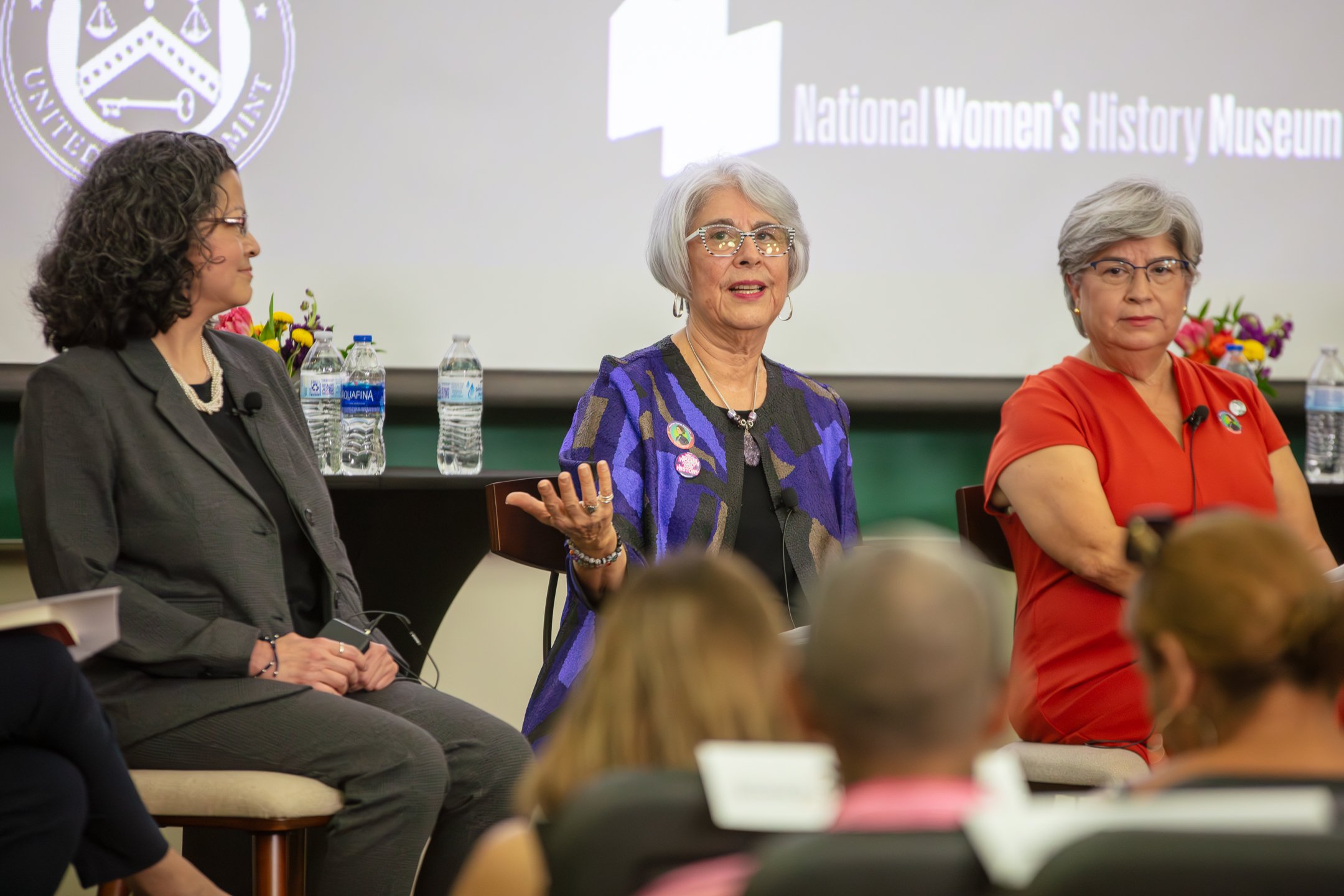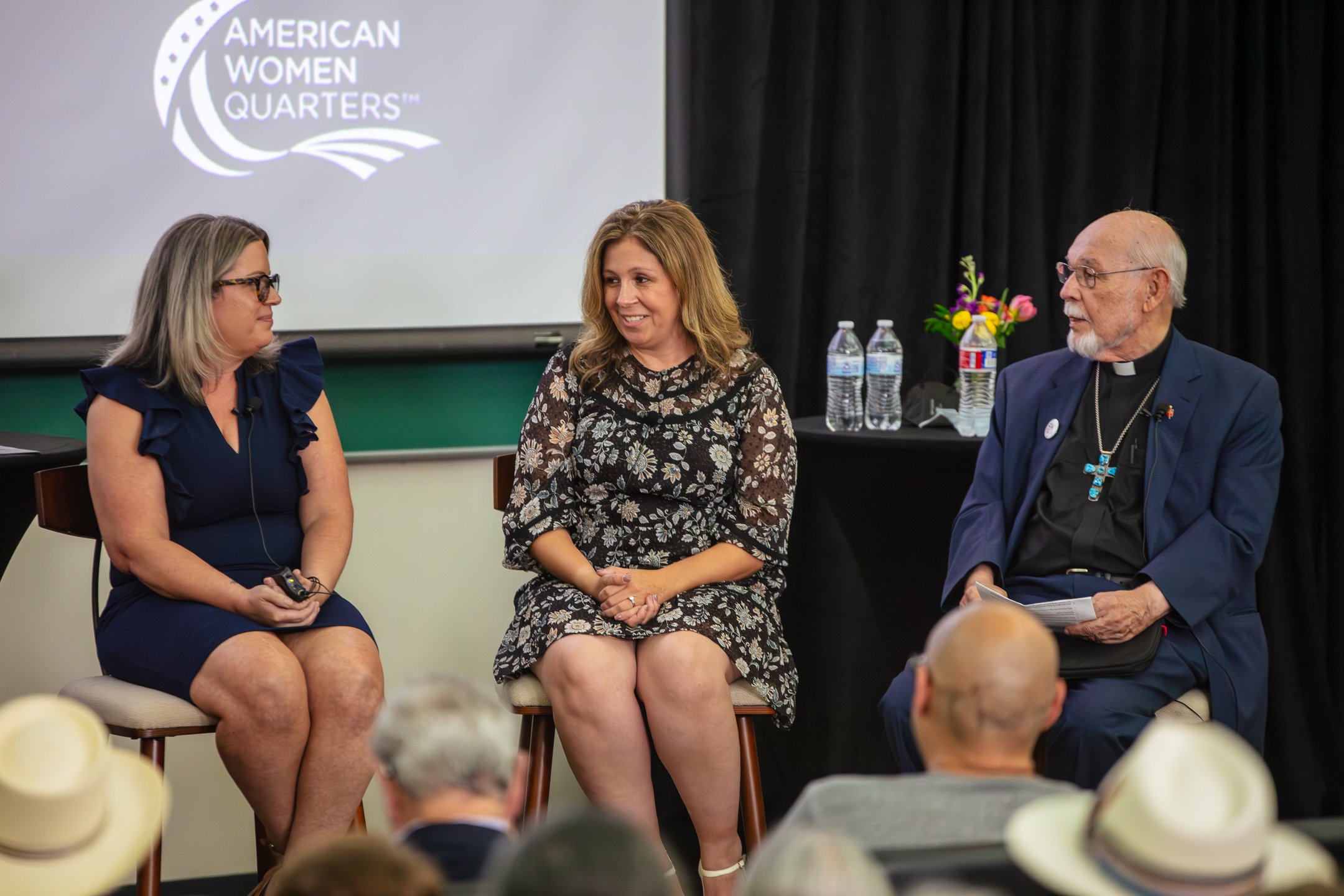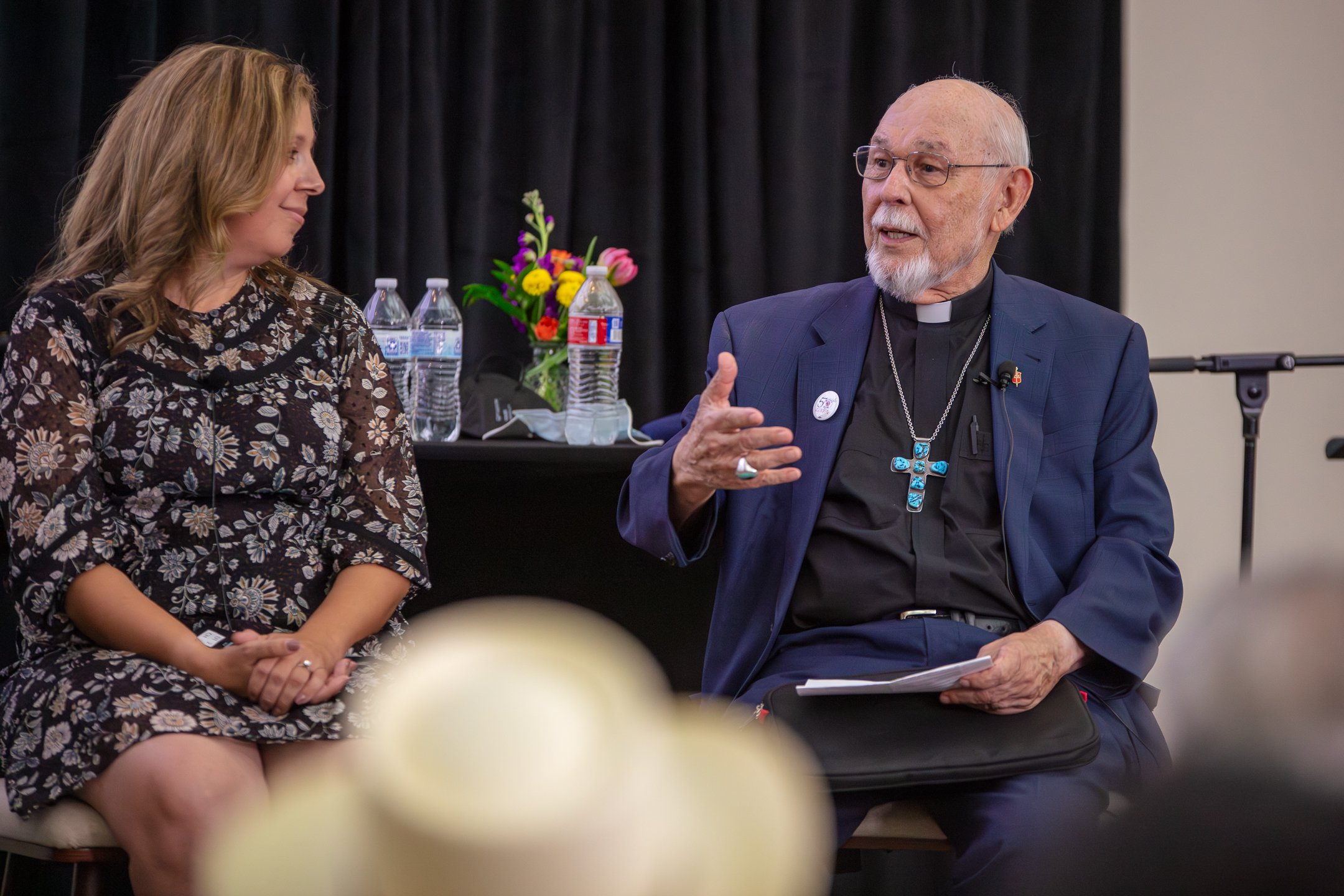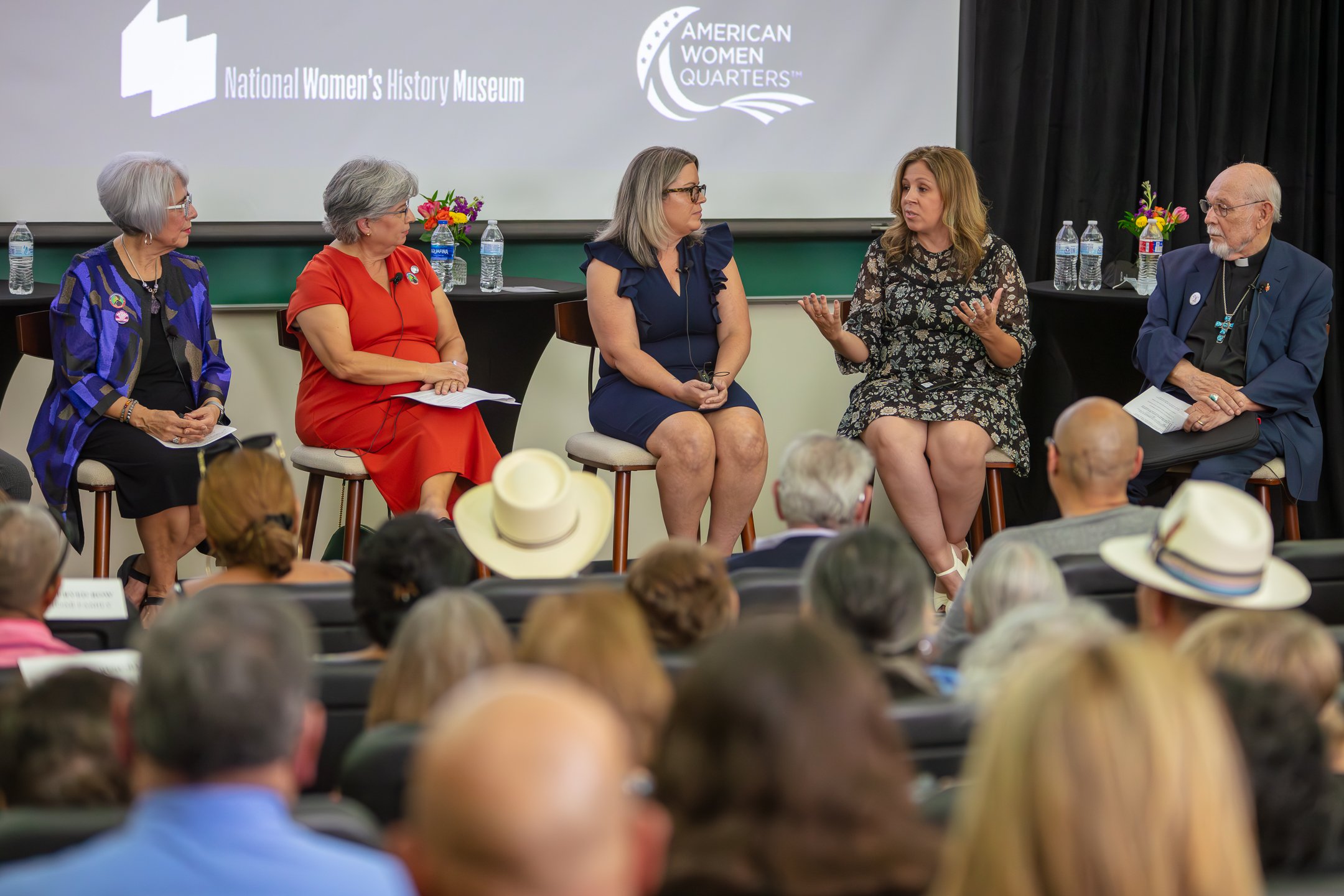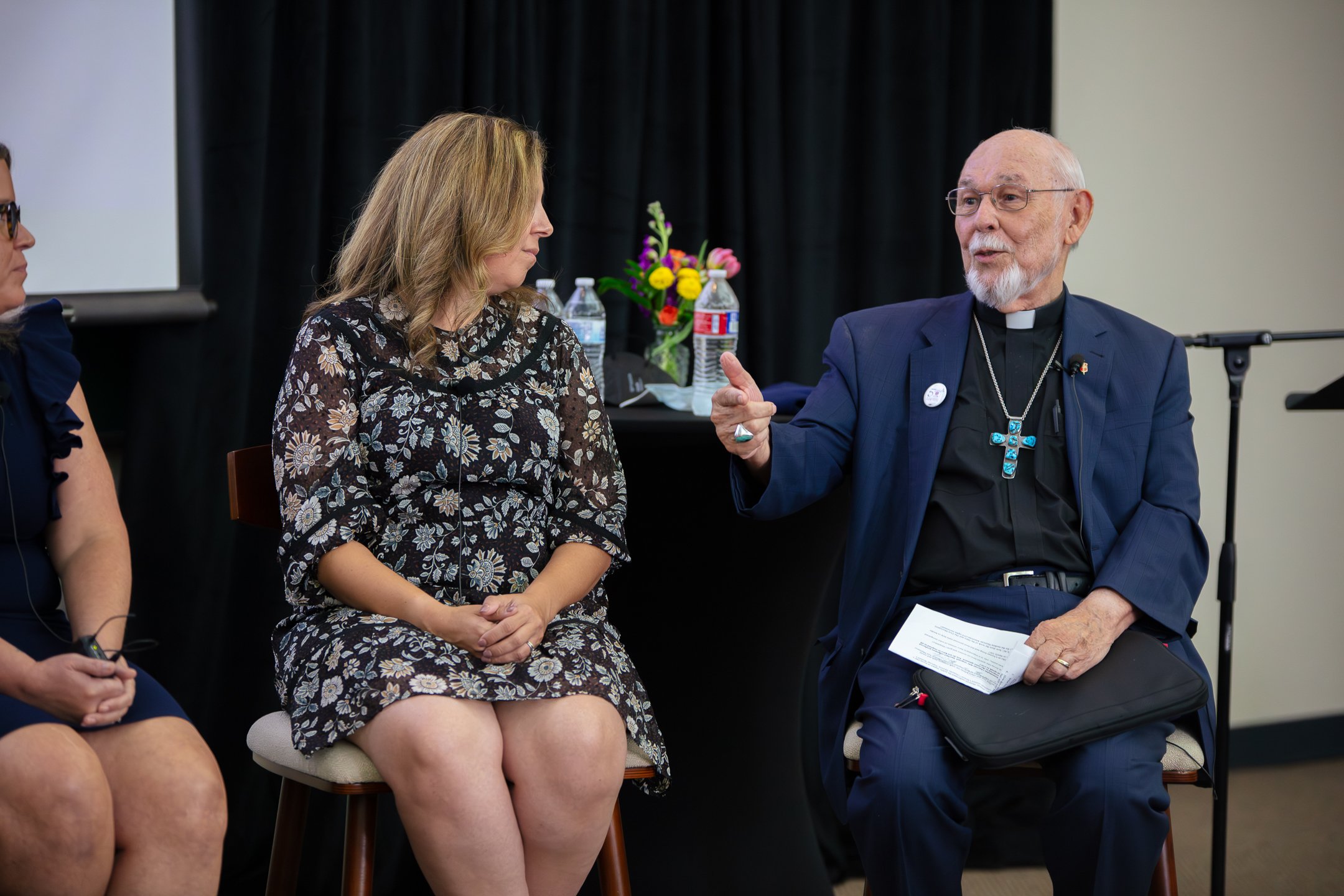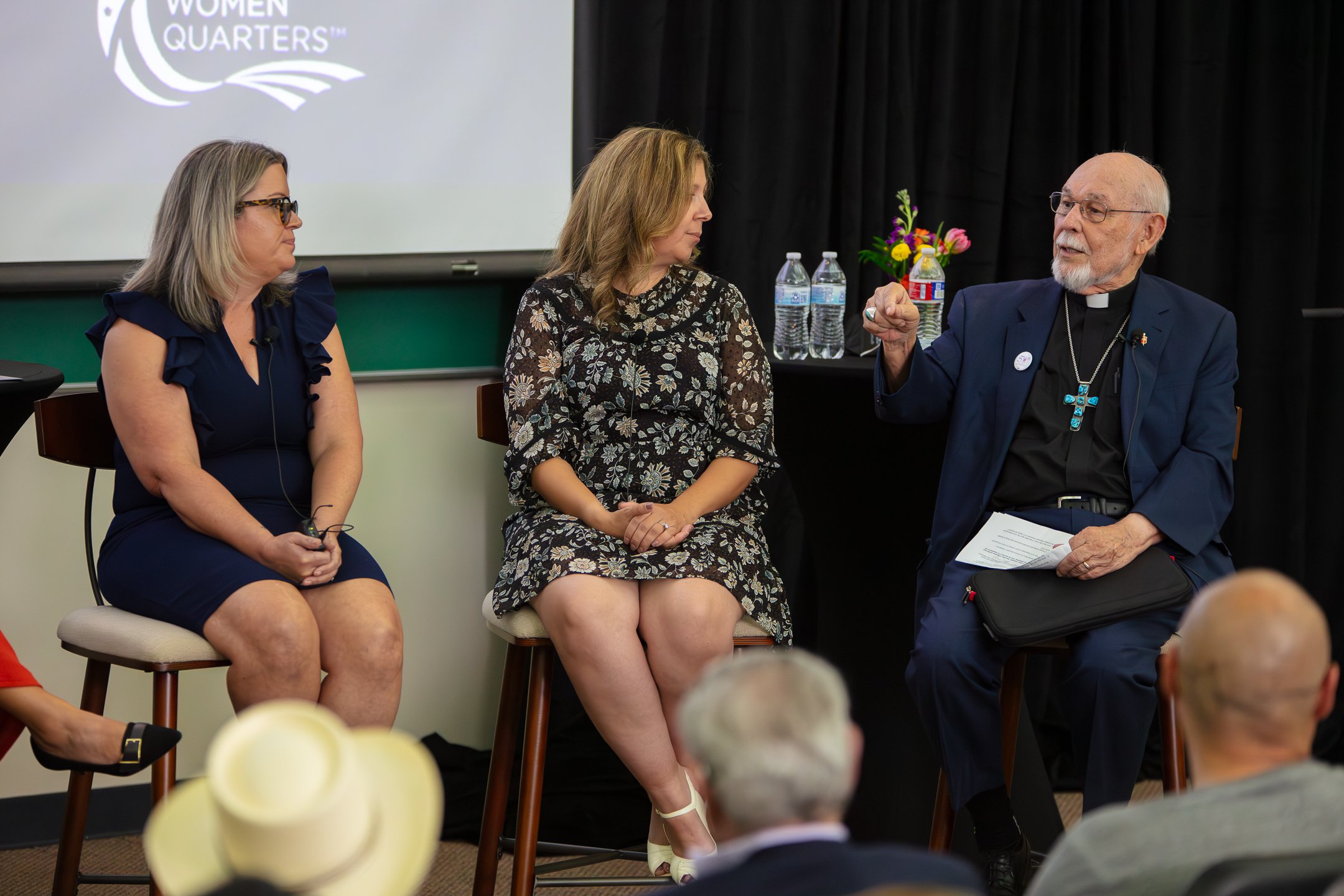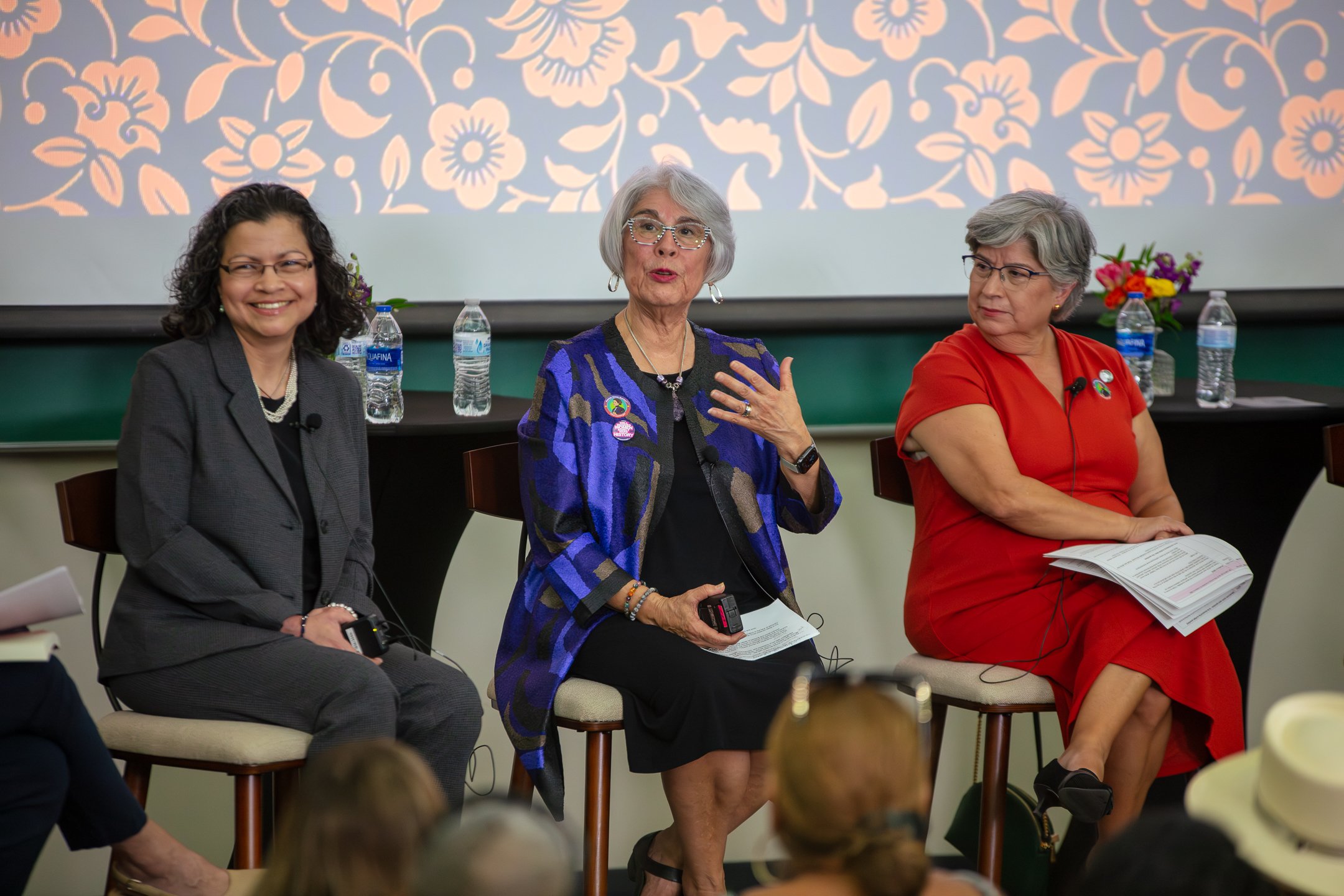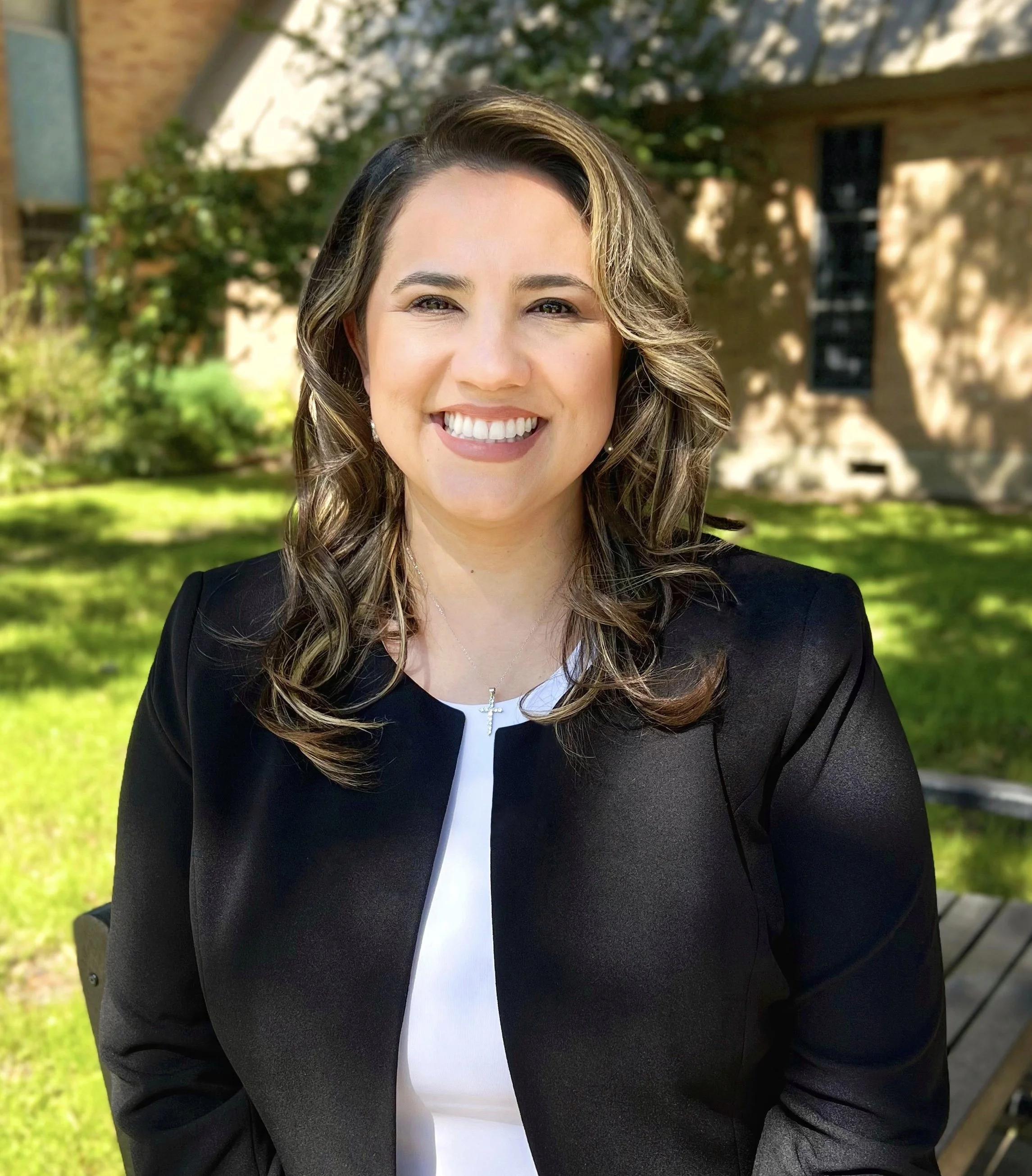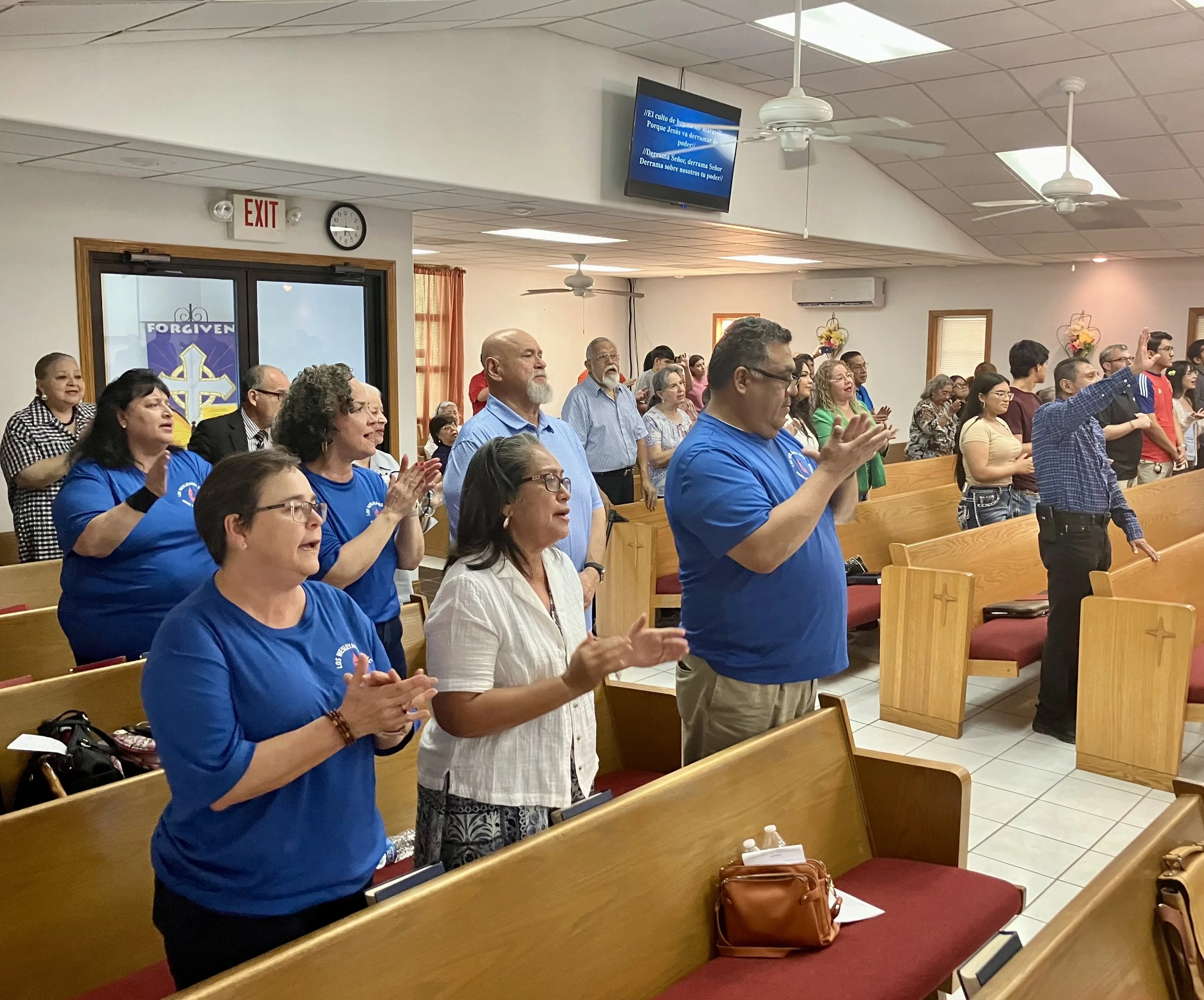Members of the San Antonio community gathered at the UTSA Downtown Campus located on the city’s historic westside to celebrate the minting of Jovita Idar on a U.S. quarter on Thursday, September 14. Members of the U.S. mint contributed to a roundtable hosted by UTSA and members of Jovita’s family, as well as Retired Bishop Joel Martínez.
Jovita Idar was a civil rights advocate, journalist, and a political activist that focused on empowering Mexican-American women to engage in politics during the Mexican Revolution. She brought awareness to women’s suffrage in the dawn of the 20th century. She included her family in much of her political activism.
Rev. Dr. Elizabeth A. Lopez and Martha L. Aki were great nieces of Jovita and recounted memories of their mother’s discussions with Jovita.
“I think we found that strength in the stories that my cousins and I heard from our mothers. Her commitment to The United Methodist Church’s values of personal and social holiness prepared a way for me to confront the patriarchal constraints and racism that exists within the UMC,” said Dr. Lopez. “Her inherit strengths to keep me going when I wanted to quit gave me and other Hispanic women the experience of ministry in cross-racial appointments. The commitment of her faith was an undercurrent for everything she did: not only with her family but also with La Trinidad UMC. 141 years later, the first woman was appointed to La Trinidad UMC – Raquel Feagins. My Tía Jovita would be excited and applaud.”
Aki recalled that even though they were not born during Jovita’s life, their mother would sneak-in and listen to Jovita’s political discussions with her family.
“We were able to hear those stories because my mom and Aunt Evangelin got behind chairs and sofas and listen to the stories. We got those stories firsthand from our mom – a strong, passionate, and determined family.”
Jovita’s activism was supported by her numerous brothers.
“It was just Jovita and the boys—all her brothers. She was an advocate for women’s rights because she was supported by her brothers to be that woman,” said Aki. “She was encouraged to study, get out there and write articles for La Crónica. For the dads out there: What you tell your little girl is extremely important. Not just the women, but the men were supportive of women’s rights.”
Bishop Joel Martínez reminded the spectators in the crowded lecture hall to be like Jovita: do not limit yourself to what others expect of you.
“We have a tendency to confine and assign roles,” said Martínez. “Don’t be defined by those who want to limit you, be defined by the Creator who gave you all the gifts that you have and sense and explore them. That will take you to places where you don’t want to go sometimes, even when your family is aghast about you. In 1956 women were authorized to preach in UMC, and some of their families were aghast! But they wanted to go into preaching. I would raise that up for us to ponder: do not limit your children—boys or girls—to what you think is their probable potential path to the future. Pray them into a freedom that might take them all the way to a place where you don’t want to see them go, but that God will be with them there.”
Associate Professor of UTSA Dr. Gabriela Gonzalez is working on a second book about the life of Jovita Idar.
“Jovita would teach through example. The way she dressed and talked, handled herself in public. She talked with gravitas. She was a mentor, teacher, and friend. She was nurturing but also firm and could call you out. People admired all her gifts and talents with humility. The human dignity was oozing out of her.”
Rev. Miguel Padilla was part of the Rio Texas Conference delegation that was in attendance.
“I was happy to hear the U.S. Mint’s efforts to be more inclusive. It is affirming how important it is to bring stories of women who look like my sisters and mother. Jovita’s story led me to see that we need everyone’s ideas and voices to create a community where everyone is welcome. It also breaks the stereotype of the silent woman. We need the female perspective and leadership to create new models, systems, and way to do things.”

